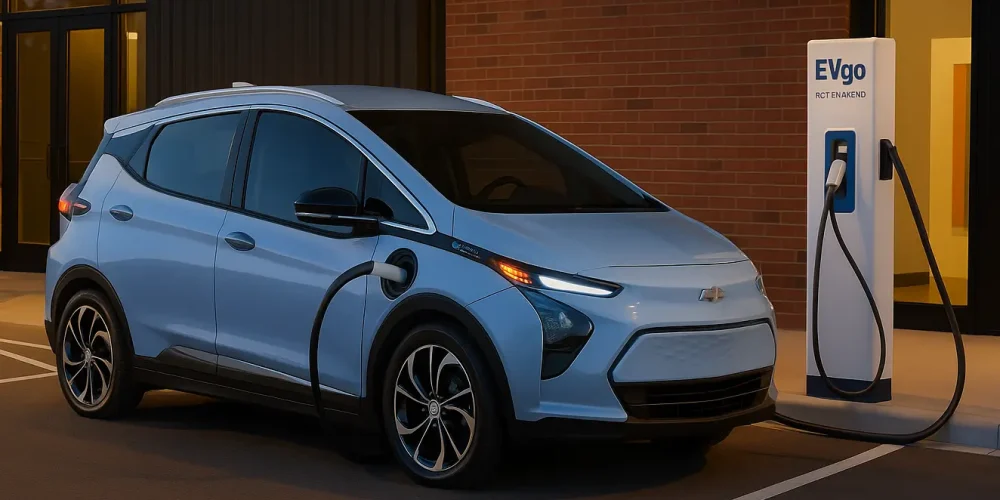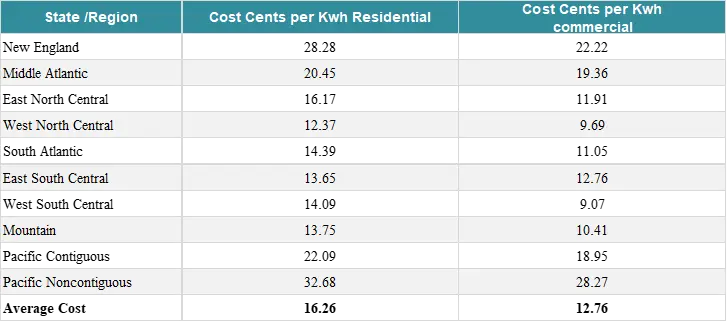
Breaking Down Bolt EV Charging Costs: What You’ll Pay at Home and on the Road
When considering the long-term value of owning an electric vehicle like the Chevy Bolt EV, charging costs are a key factor. This compact hatchback offers great efficiency, and understanding “how much does it cost to charge a Chevy Bolt” can help you better plan your daily expenses and road trip budgets. We had an close introduction on How to Charge Chevy Bolt and How long does it take to charge a Chevy Bolt in the previous articles. In this guide, we’ll explore home and public charging expenses, regional electricity variations, and the factors that influence overall cost.
Home Charging Costs
Charging your Chevy Bolt EV at home is often the most economical and convenient option. Based on the U.S. national average residential electricity rate of $0.162 per kWh, here’s what you can expect:
- Full Charge (66 kWh battery): Approximately $10.69
- Cost per 100 Miles: Around $4.54
These figures are ideal for owners who plug in overnight or have access to cheaper time-of-use electricity rates. Over the course of a year, the cost savings of home charging versus public charging can add up significantly.

Many Level 1 and Level 2 chargers available on the market now offer remote control capabilities, enabling users to schedule charging during off-peak hours when electricity is cheaper. This is a great way to reduce your Chevy Bolt’s charging costs.
The Duevolt 48Amp J1772 EV Charger, for instance, supports app control via Wi-Fi and Bluetooth, allowing you to easily select preferred charging times—making your charging smarter and more economical.
Public Charging Costs
For drivers relying on public stations, especially DC fast chargers, costs are understandably higher. The average commercial electricity rate is about $0.35 per kWh:
- Full Charge (66 kWh): Roughly $23.10
- Cost per 100 Miles: Around $9.80
Public charging is beneficial for long-distance travel or when a home setup isn’t available. However, frequent use can double your charging costs compared to home charging.

Regional Electricity Rates
Electricity rates differ by region, which can greatly affect how much it costs to charge a Chevy Bolt. For instance, rates in the Pacific Noncontiguous region can exceed $0.30 per kWh, while regions like the West North Central average below $0.13 per kWh.

Understanding your local rate helps you calculate more accurate charging expenses. It’s especially useful for drivers who split their time between regions or states.
Factors That Affect Charging Costs
Several variables impact your actual charging cost beyond just the price per kilowatt-hour:
- Charging Efficiency: Energy loss during the charging process (usually 10–15%) means you’ll consume more than the battery’s stated capacity.
- Battery Degradation: Older batteries may require more energy to reach full charge.
- Time-of-Use Rates: Charging during peak hours can cost significantly more than off-peak.
- Weather Conditions: Extremely cold or hot climates can increase energy usage, especially if cabin climate control is active while charging.
- Idle Fees and Overage Charges: Some public charging networks, such as Tesla Superchargers, may impose additional fees for remaining plugged in after charging is complete. These fees can surprise drivers who leave their cars unattended.
By considering these elements, you can fine-tune your charging strategy for both cost and convenience.
Conclusion
So, how much does it cost to charge a Chevy Bolt? While the answer depends on location, charging method, and usage habits, most drivers will find home charging the most cost-effective solution—typically under $11 for a full charge. Public charging, while faster, can double that figure. By understanding these dynamics, you can make smarter decisions and reduce your Bolt EV’s running costs over time.
